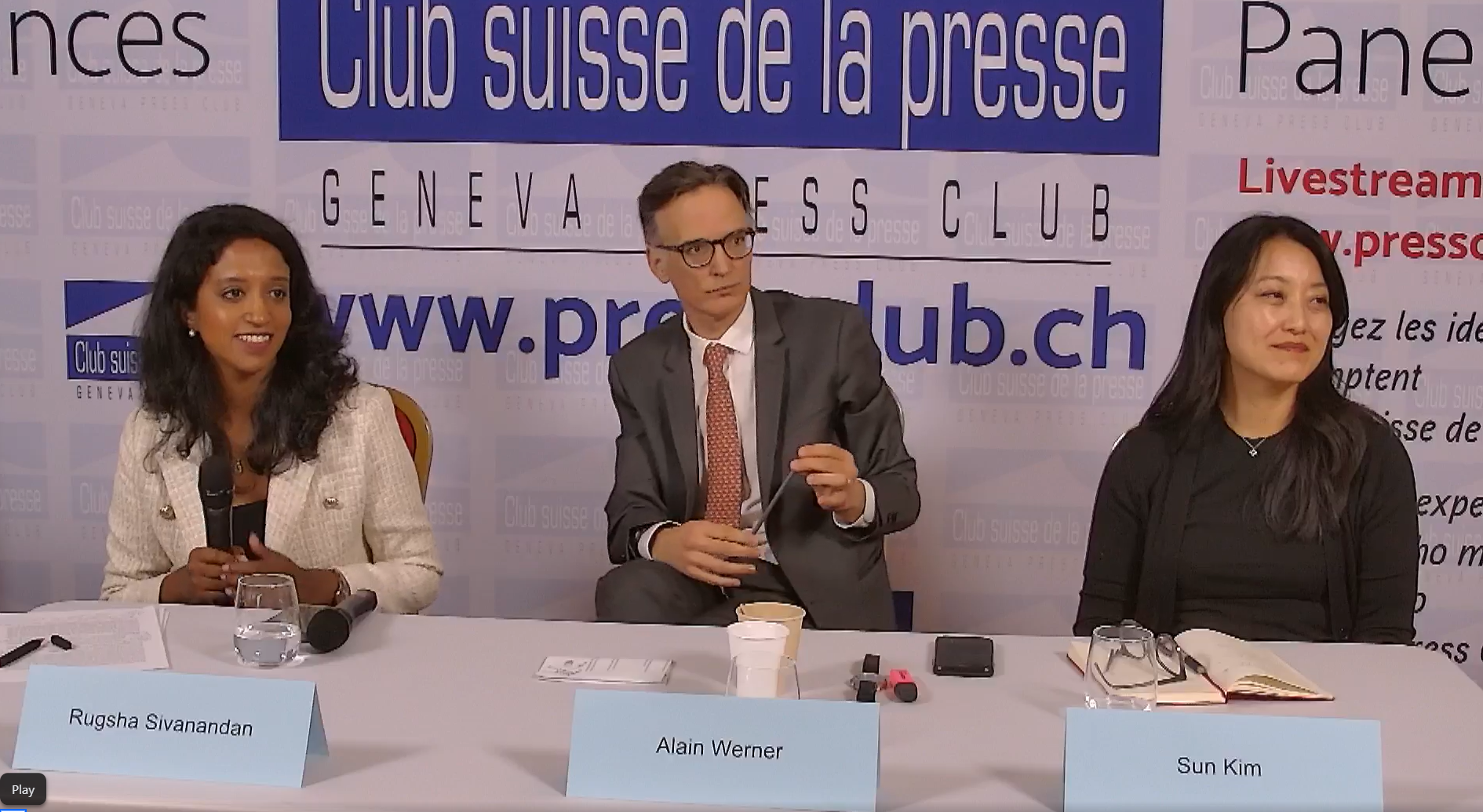The National Council of Canadian Tamils (NCCT), in collaboration with several international Tamil diaspora organizations, hosted a panel discussion titled "Advancing International Accountability in Sri Lanka" at the Geneva Press Club earlier this month.
The National Council of Canadian Tamils (NCCT), in collaboration with several international Tamil diaspora organizations, hosted a panel discussion titled "Advancing International Accountability in Sri Lanka" at the Geneva Press Club earlier this month.
The event brought together experts in international law, human rights, and civil society to foster an understanding of the current human rights situation in Sri Lanka and highlight the importance of global solidarity in advancing accountability mechanisms.
The panel featured distinguished speakers, including Alain Werner, an international criminal lawyer; Sun Kim, an international human rights lawyer; and Anantharaj Nadarajah, a member of the Tamil Civil Society Forum. The discussion was moderated by Rugsha Sivanandan, Executive Director of the NCCT.

Calls for International Accountability
In her opening remarks, Sivanandan emphasized the urgent need for international accountability to address systemic impunity in Sri Lanka. She stressed the importance of establishing an independent international investigation and prosecutorial mechanism that would gain the trust of Tamil victims and survivors, ensuring that perpetrators of war crimes, crimes against humanity, and genocide against the Tamil people are held accountable. Sivanandan expressed concerns over Sri Lanka's unwillingness to take meaningful steps toward justice, reinforcing the necessity of international intervention.
Genocide Allegations and Ongoing Human Rights Violations
Anantharaj Nadarajah, speaking via video from Sri Lanka’s Northern Province, outlined the historical and ongoing abuses faced by the Tamil population. Since 1948, he argued, the Sri Lankan government has systematically engaged in genocidal actions, including pogroms, massacres, state surveillance, intimidation, enforced disappearances, and land grabs, all of which continue today. He claimed these acts aim to dismantle the Tamil Nation and subjugate the Tamil people, including surveillance, intimidation, harassment, arrest, violence, torture, Buddhisization, colonization, militarization, Sinhalisation, enforced disappearances and land grabs. Nadarajah highlighted the government's refusal to address these atrocities, asserting that an international independent investigation is the only viable path to justice.
International Legal Pathways for Justice
Alain Werner, a seasoned international criminal lawyer, discussed the limitations of relying solely on international bodies like the United Nations (UN) and the International Criminal Court (ICC), which could lead to significant delays in justice for the Tamil people. Drawing parallels to the pursuit of justice in Liberia and Iran, Werner explained how victims and civil society were able to seek accountability through national courts and other legal jurisdictions. He emphasized that crimes under international law are not bound by statutes of limitations and encouraged Tamil victims to continue pushing for justice through various national and international channels.
Alternative Legal Approaches
Sun Kim, an international human rights lawyer and legal advisor at the United Nations Office of the High Commissioner for Human Rights, echoed the importance of exploring multiple legal strategies. She noted that, while Sri Lanka is not a state party to the ICC, other mechanisms, such as the International Court of Justice (ICJ), offer potential avenues for justice. Kim referenced the successful case brought by The Gambia against Myanmar for genocide, urging civil society to explore similar options.
Kim also highlighted the principle of universal jurisdiction, allowing victims to pursue justice for international crimes in other states' courts. She advocated for a multifaceted approach, leveraging UN mechanisms like the Sri Lanka Accountability Project (SLAP), which consolidates evidence of gross human rights violations in Sri Lanka to support future judicial proceedings. Kim concluded by stressing the importance of continued efforts by the Tamil community to pursue justice through creative, multi-pronged strategies.
The panel concluded with a renewed call for international solidarity in the pursuit of accountability for the Tamil people. The speakers underscored the need for sustained efforts by civil society, both within Sri Lanka and globally, to bring attention to the ongoing violations and seek justice for the Tamil genocide.
